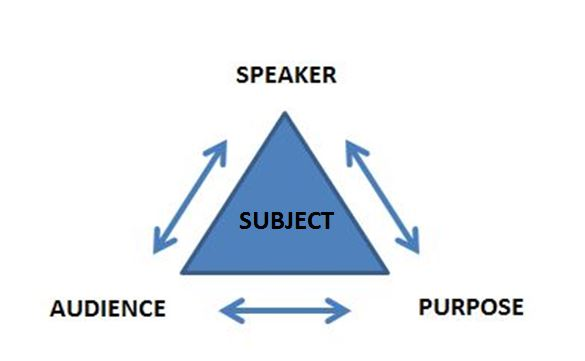Introducing Rhetoric: Using the “Available Means”
To many people, the word rhetoric signals that trickery or deception is afoot. They assume that an advertiser is trying to manipulate a consumer, a politician wants to obscure a point, or a spin doctor is spinning. Yet the ancient Greek philosopher Aristotle defined rhetoric as the faculty of observing in any given case, the available means of persuasion. At its best rhetoric is a thoughtful, reflective activity, leading to effective communication. In our day, as the time of Aristotle, those who understand and can use the era means appeal to an audience of one or many find themselves in a position of strength. Rhetoric is not also just about speeches. Every essay, political cartoon, photographed and advertisement is designed to convince you of something. To simplify, we will call all of these things, texts, because they are cultural products that can be read, meaning not just consumed and comprehended, but investigated.
The Rhetorical Triangle

Another important of the rhetorical situation is the relationship among speaker, audience and subject. One way to conceptualize the relationship among these elements is through the rhetorical triangle. Some refer to it as the Aristotelian triangle.
The Speaker is a group or person who creates a text. This may be a politician who delivers a speech, a commentator who writes article, an artist who draws a political cartoon, or even a company that commissioned advertisement. The audience is a listener, viewer or reader of a text or performance. But it is important to note that their may be multiple audiences. The subject is the topic of the text.
Ethos, Logos, Pathos
Now that we practice analyzing a rhetorical situation, the next step is to use the tools of rhetoric to persuade an audience. Let's start with what air shuttle called rhetorical appeals. He identified three man appeals, ethos logos and Papers. These are important in that they provide a structure and a reminder that effective rhetoric takes into account all three, though rarely in equal measure.
A speakers ethos expertise, knowledge, experience, sincerity or combination of these factors gives the audience a reason to listen to this person on this subject. By effective ethos, we mean ways that the speaker demonstrates that he or she is stressworthy and credible. Speakers appealed to logos or reason by offering clear rational ideas, appealing to logos means thinking logically having a clear main idea and using specific details examples, facts, statistics or expert testimony to back it up. Pathos is an appeal to emotions, values, desires and hopes.
Humorous and Satirical Rhetoric
Human satire can be effective appeals to pathos, as long as you understand your audience. You know my work which worker by wrapping a challenge to our beliefs in something that makes feel good, thus making this more receptive for the new idea. It can also work by exaggerating a concept in order to make a sea its fault or vulnerabilities, whether it's gentle, tongue in cheek, teasing or bitter irony, humor may help a writer to make a point without seeming to preach the audience or take himself or herself to seriously. Bohemia can also be risky. If your aim is to merely poke fun as you share your thoughts on the world around you, how do you know ahead of time whether your audience will see it as heard from mockery, or just as humorous attack? This means that you need to know your audience very well to use humor effectively and not offend anyone.